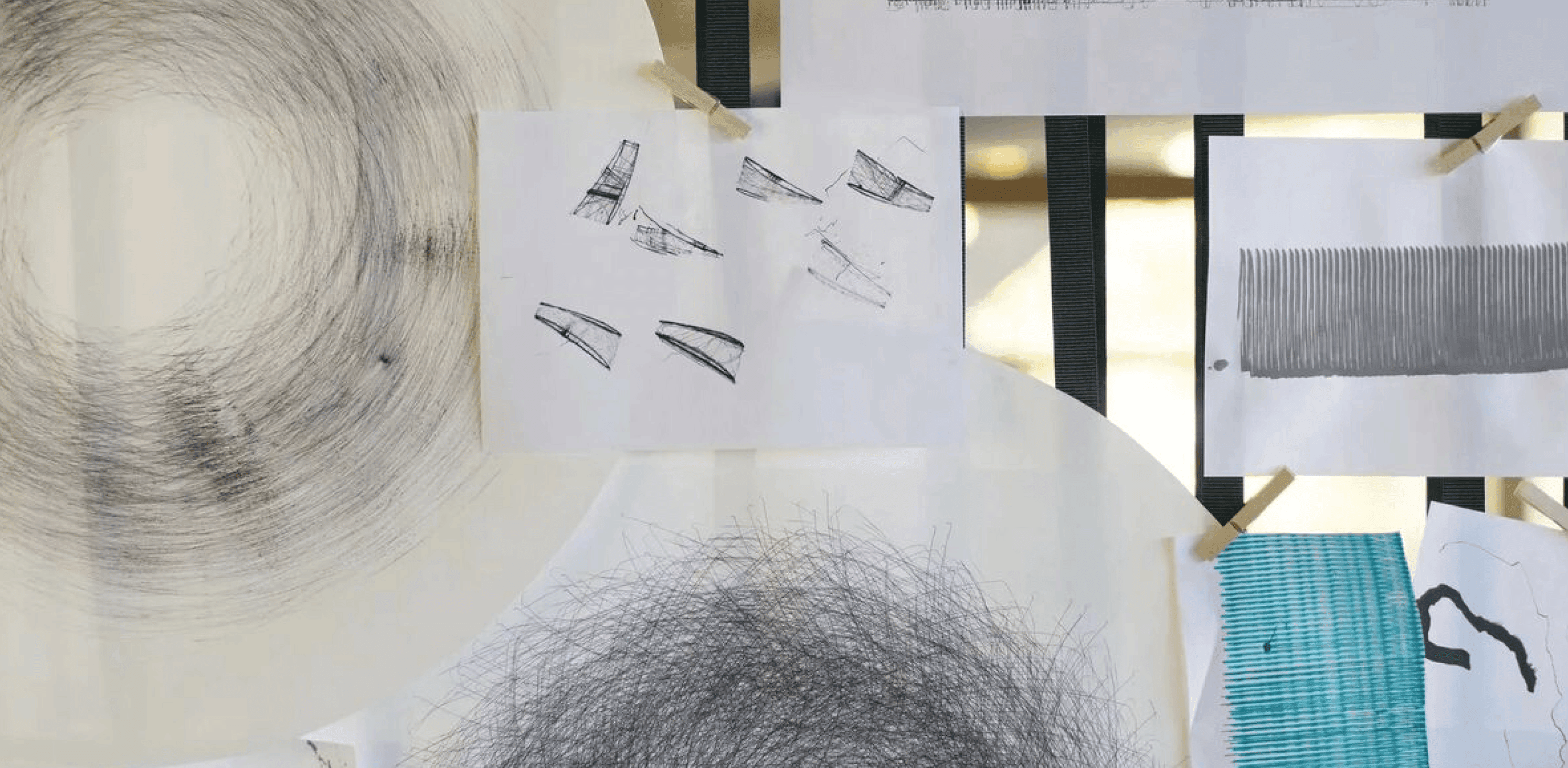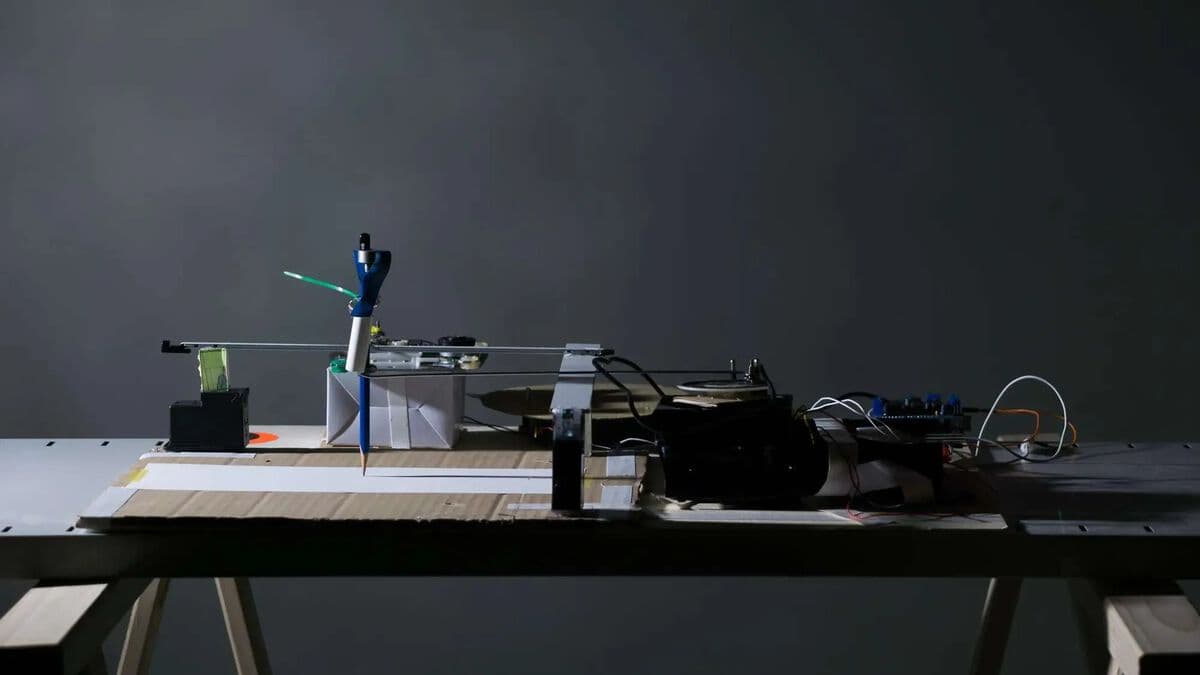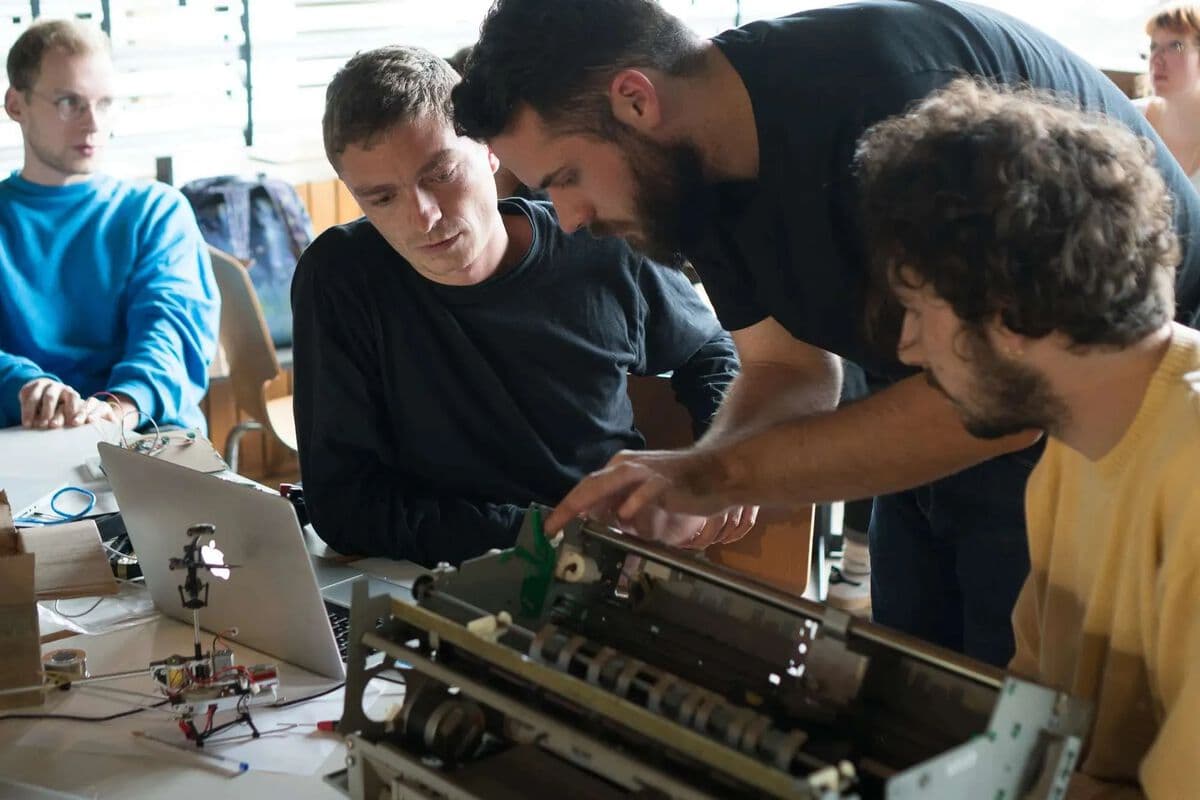
![Logo: [object Object]](/_next/image?url=%2F_next%2Fstatic%2Fmedia%2Fabk.a00b9603.png&w=3840&q=75)
creative hacking
2 / 2018
A course format integrating technology into the design process. Eleven first-year students created drawing machines by deconstructing and reprogramming old office equipment, generating new machine typologies through a free creative process. The project won the competitionline campus competition in the faculty projects category.

